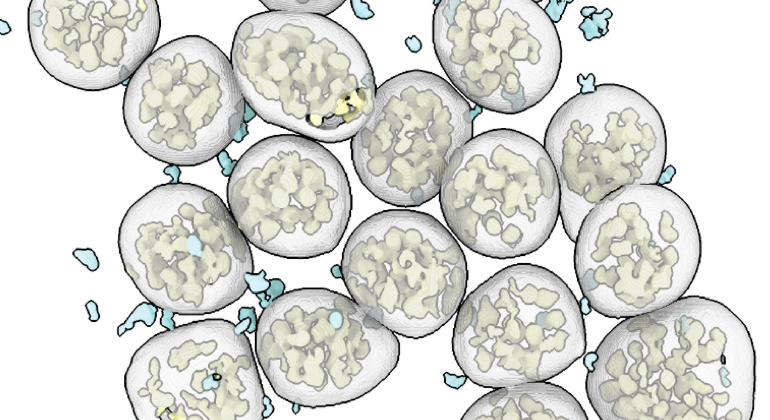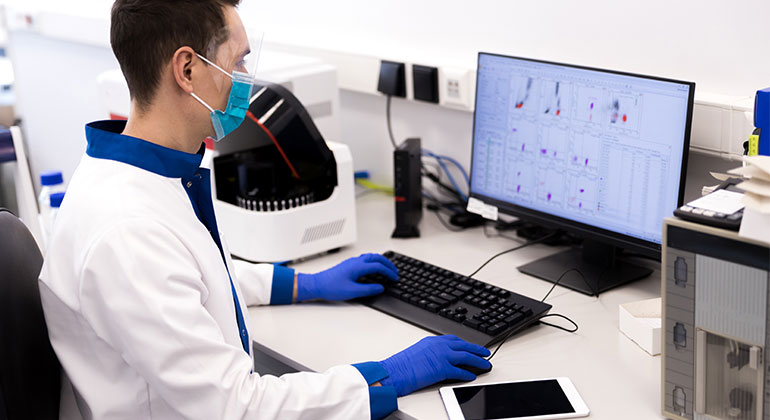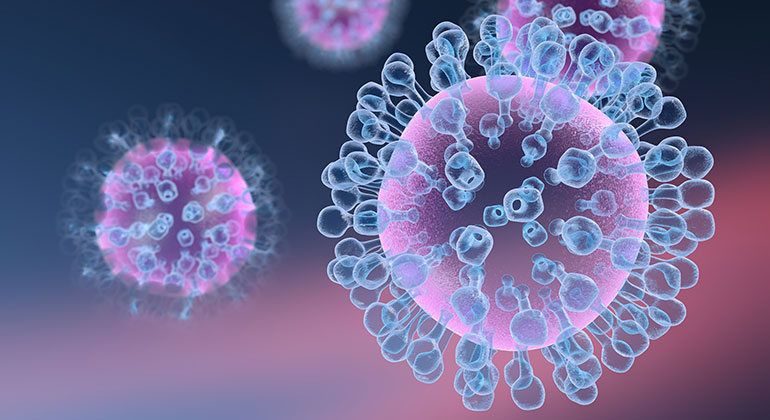Mount Sinai Researchers Bring Us One Step Closer to Universal Influenza Vaccine
The scourge of the influenza virus devastates health and claims many lives worldwide each year. It is especially daunting because vaccines are only protective when they are well matched to the strains circulating in the population. But now, a team led by researchers at the Icahn School of Medicine at Mount Sinai is getting closer to a universal flu vaccine using a novel approach they’ve developed called chimeric hemagglutinin (cHA).
A protein on the surface of influenza viruses, hemagglutinin, shepherds the virus into host cells. Hemagglutinin is comprised of a ‘head’ (variable) and a ‘stalk’ (varies less from strain to strain). Thus, Icahn School of Medicine researchers, led by Peter Palese, Ph.D., Professor and Chair of Microbiology and Florian Krammer, Ph.D., Professor of have focused their efforts on developing a vaccine against the stalk portion of this protein. Their study, undertaken in collaboration with PATH, an international nonprofit, the Cincinnati Children’s Hospital Medical Center, the Duke Early Phase Clinical Research Unit, and the University of Chicago, involved testing of several cHA-based vaccination regimens to see if they would induce antibodies that provide broad protection against influenza virus infections. The results were published this month in The Lancet Infectious Diseases.
The diverse research team including Adolfo García-Sastre, Ph.D., Professor of Microbiology and Director of the Global Health and Emerging Pathogens Institute at Icahn; Bruce Innis, M.D., Leader, Respiratory Infections and Maternal Immunizations at PATH; and Patrick Wilson, Ph.D., Professor of Medicine at the University of Chicago, have investigated whether several potential cHA-based vaccines might induce antibodies that would target the stalk of group 1 hemagglutinin-expressing influenza viruses. An adjuvant, an ingredient that boosts the effectiveness of vaccines, was also part of the testing process.
Vaccine regimens examined included: 1) a group receiving a chimeric H8/1 hemagglutinin-based live attenuated vaccine followed by a boost with a non-adjuvanted chimeric H5/1 hemagglutinin-based inactivated vaccine (IIV), and 2) the same regimen but with the IIV having an adjuvant called AS03, and 3) a prime-boost regimen including an adjuvanted cH8/1 IIV prime followed by an adjuvanted cH5/1 IIV boost.
The researchers found that the IIV, but not the live attenuated vaccine, induced a significant antibody response after the prime, with a strong increase in anti-H1 stalk titers. All vaccine regimens induced detectable H1 stalk antibody responses after receiving boosts.
“The vaccine induced a broad antibody response which was not only cross-reactive for currently circulating human influenza virus but also to avian and bat influenza virus subtypes,” said Florian Krammer. “It was surprising to find that the inactivated formulation with adjuvant induced a very strong anti-stalk response already after the prime suggesting that one vaccination might be enough to induce protection against pandemic influenza viruses yet to arise. The results indicate that we are moving towards a universal influenza virus vaccine, but these are still interim results. Additional results will be available upon completion of the study at the end of 2019.”
The University of Chicago performed crucial testing; funding was provided by a grant from the Bill & Melinda Gates Foundation. GlaxoSmithKline contributed some of the vaccines and adjuvants. Foundational support was provided by the by the National Institute of Allergy and Infectious Diseases.
About the Mount Sinai Health System
Mount Sinai Health System is one of the largest academic medical systems in the New York metro area, employing 48,000 people across its hospitals and more than 400 outpatient practices, as well as more than 600 research and clinical labs, a school of nursing, and a leading school of medicine and graduate education. Mount Sinai advances health for all people, everywhere, by taking on the most complex health care challenges of our time—discovering and applying new scientific learning and knowledge; developing safer, more effective treatments; educating the next generation of medical leaders and innovators; and supporting local communities by delivering high-quality care to all who need it.
Through the integration of its hospitals, labs, and schools, Mount Sinai offers comprehensive health care solutions from birth through geriatrics, leveraging innovative approaches such as artificial intelligence and informatics while keeping patients’ medical and emotional needs at the center of all treatment. The Health System includes approximately 9,000 primary and specialty care physicians and 11 free-standing joint-venture centers throughout the five boroughs of New York City, Westchester, Long Island, and Florida. Hospitals within the System are consistently ranked by Newsweek’s® “The World’s Best Smart Hospitals, Best in State Hospitals, World Best Hospitals and Best Specialty Hospitals” and by U.S. News & World Report's® “Best Hospitals” and “Best Children’s Hospitals.” The Mount Sinai Hospital is on the U.S. News & World Report® “Best Hospitals” Honor Roll for 2024-2025.
For more information, visit https://www.mountsinai.org or find Mount Sinai on Facebook, Twitter and YouTube.






